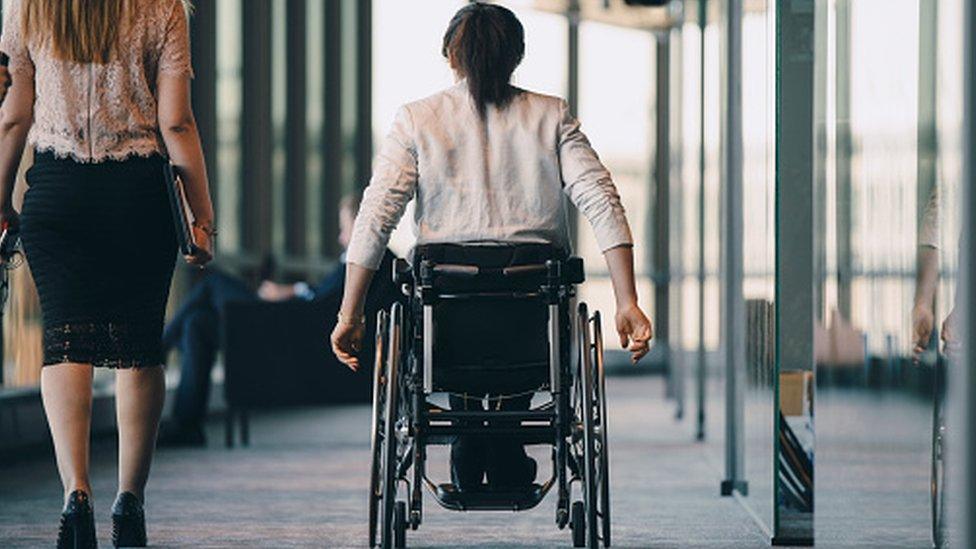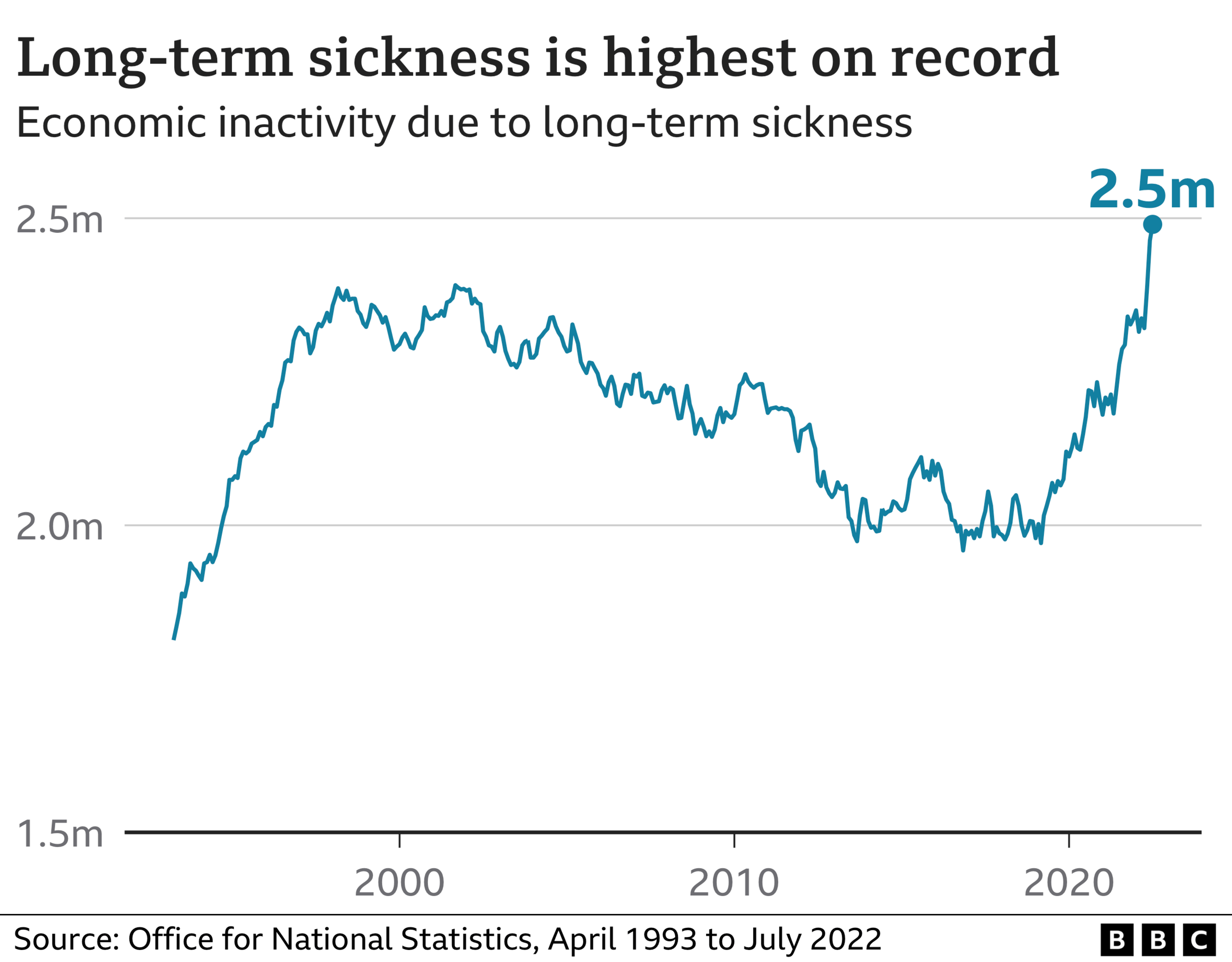Disability work tests to be scrapped in welfare shake-up
- Published

Jeremy Hunt said he wanted to "remove the barriers" that stopped people with disabilities from working
Disability fit-for-work tests will be abolished under reforms billed as the "biggest change to our welfare system in a decade" in Chancellor Jeremy Hunt's Budget.
Mr Hunt said benefit claimants will be able to seek work "without fear of losing financial support".
Currently, disability benefits can be reduced or withdrawn when a claimant returns to work.
The plans are part of Mr Hunt's drive to get more people back into work.
The number of people who cannot work because of long-term sickness has been rising, with recent figures showing 2.5 million were missing from the labour market because of medical conditions.
In a Budget that focused on efforts to boost employment, Mr Hunt said he wanted to "remove the barriers that stopped people who want to from working".
He said half of the job vacancies in the UK could be filled by "people who say they would like to work despite being inactive due to sickness or disability".
The UK government's plans to get more of those people into work have been detailed in a new policy report - known as a white paper - on disability benefits reform.
The white paper recommends scrapping the "work capability assessment" system used to consider whether disabled people can claim benefits.
Critics says the assessments are humiliating for disabled people and discourage them from working.
Disability charities said they were encouraged by the reforms but one, Scope, warned the government it had "a mountain to climb to win back the trust of disabled people".
Other changes to benefits announced in the budget include:
More rigorous sanctions for benefits claimants who fail to meet strict work-search requirements or choose not to take up a reasonable job offer
Job centre staff given additional training to help people into work, or more hours
Universal Credit claimants who receive help with childcare costs will in future see the money paid in advance - rather than having to claim it back - and see the maximum amount increased by almost 50%
New system
At the moment, when someone applies for Universal Credit benefits, they are asked if they have a health condition or disability that affects their capability for work.
If they do, they may be asked to undergo a work capability assessment. If they are deemed fit for work, their benefits may be withdrawn.
Decisions are taken by officials at the Department of Work and Pensions using evidence from the assessments, carried out by healthcare professionals.
The government's white paper says removing the Work Capability Assessment "will ensure that those who are able to can progress in or towards work, without the worry of being reassessed and losing their benefit".
It has been replaced with a process that asks claimants to demonstrate what work they might be able to take.


Under the new system, there will only be one assessment for people claiming Personal Independent Payment (PIP), the main disability benefit.
A new Universal Credit "health element" will be awarded to claimants of PIP, "ensuring there is a safety net in place for the most vulnerable", the white paper says.
Universal Credit claimants deemed as having limited capability for work and work-related activity can currently receive a top-up payment of up to £354.28 a month.
The white paper says the same amount will be paid to benefits claimants in this category.
When the changes come in, new claimants who do not qualify for PIP would not get any additional benefit top-up and would be expected to look for work.
The government says it will attempt to pass legislation to bring these changes into effect "when parliamentary time allows".

'Not everybody is able to work'
Susan is 63 and lives in London - she has an autoimmune disease, spinal and bowel conditions. She also has emphysema, asthma and cannot produce antibodies.
She told the BBC the reforms to disability benefits were "a good thing for people who can work".
But she felt there was little emphasis on those who do not have the ability to physically go out.
"A lot of people are too disabled to work. For example, with my autoimmune disease if I'm in a public setting, I could pick up an infection, therefore I cannot work."
She added: "I feel like they're trying to get people off disability benefits and back into the workforce but not everybody is able to work."
She said the government needed a better understanding of the day-to-day needs of disabled people and should take into account individual cases.


In his Budget, the chancellor said there will be new, voluntary employment scheme for people with disabilities.
He said the government will spend up to £4,000 per person to help them find appropriate jobs and put in place the support they need. It will fund 50,000 places every single year, he said.
Mr Hunt also allocated £400m in funding to increase the availability of mental health and musculoskeletal resources for workers.
A forecast by Office for Budget Responsibility shows the government is expected to spend almost £80bn on health and disability benefits in 2026/27, 11.7% more than was projected just a year ago as more people successfully claim these benefits.
Scope welcomed the scrapping of the work capability assessment, saying it had long called for the separation of benefits and employment support.
But the charity's chief executive, James Taylor, said "the government must make sure it doesn't replace one out of touch test with another".
"We know that you can't sanction disabled people into work, and it's reassuring that the Universal Support scheme will be voluntary," he said.
"The government has got a mountain to climb to win back the trust of disabled people."
- Published12 January 2023

- Published15 March 2023

- Published15 March 2023
